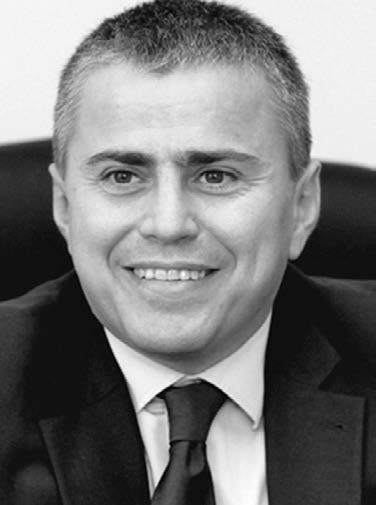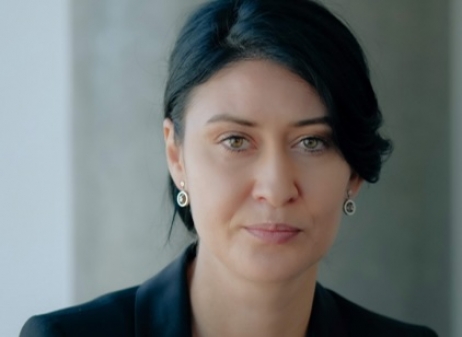
In a global market hitting $1.7 trillion in the first half of 2014, the highest value in the post-crisis period, Romania’s M&A market generates increasing interest reflected in some important deals closed since the beginning of the year.
Yet, further major developments are little likely to happen in the coming months, especially since 2014 is an election year. Although there is no direct influence on the business environment, a state of waiting is perceived in the market, investors being prudent when it comes to M&A transactions.
”There is moderate optimism as regards this market”, says Gelu Maravela, Managing Partner of Maravela & Asociatii. ”The optimism is generated by the fact that our country is in the range of interest of several solid investment funds and strategic investors who are looking for quality assets and opportunities, while moderation comes from the reduced number of quality assets and opportunities available”, he explains.
Moderate optimism defined the M&A market to a certain point in recent years, however, the positive evolution in 2013, continuing the improvement recorded in the previous years could be seen as an argument in favor of a stronger development in the coming years so as to possibly remove moderation.

Nonetheless, the average deal size remains below the levels in the region, as displayed by a similar study relative to the CSE European region. As concerns deals exceeding $100 million, the average deal size in Romania is $268 million as compared to nearly $440 million in the region. Smaller disparity is recorded in deals below $100 million, the domestic average reaching $10 million, while in CSE Europe, the average deal size is $14 million.
The range is obviously pretty large, with most transactions standing below $100 million: only two of last year’s 10 largest deals go beyond this level.
“The value of a transaction largely depends on the industry. Hence, while in the energy industry M&A transactions often reach hundreds of millions euro, other sectors (i.e. the food industry) come across much smaller deals, in the range of millions”, says Catalina Sucaciu, Partner at SCA Jinga & Asociatii.
“Most frequent transactions fall under the small and medium size category (under €30 million), while operations exceeding €100 million are quite rare”, according to Daniela Nemoianu, Managing Partner of NTMO Attorneys at Law.
The acquisition of RBS Romania’s retail banking business by UniCredit Tiriac Bank, a transaction including assets worth $424 million and liabilities of about $168 million closed in August 2013, was undoubtedly the star on a market dominated by domestic transactions.
Trends could change, though, in the light of the recent upgrade of Romania’s rating by Standard & Poor’s which is expected to have a positive impact with respect to investment and mergers and acquisitions, as Romania was basically placed on the investment radar, explains Gabriel Biris, Managing Partner of Biris Goran: “It is a highly important aspect because it is one thing to raise the rating from BB+ to BBB and it is another thing to upgrade the rating to investment grade. Our country was therefore put on the map of institutional investors who are not allowed, given their status, to enter markets which do not have investment grade”.
The magnitude of impact cannot be assessed but in the coming years, hence, 2014 will rather be a year of consolidation.
Aside from projections for future progress, the current situation reveals an M&A market with little activity since the beginning of the year, in spite of plenty of projects for sale.
 "There is a limited number of transactions. It
is still a buyers’ market nowadays as there are many projects put up for sale, but few buyers, who are very selective when it comes to purchase”, says Sebastian Gutiu, Managing Partner of Schoenherr & Asociatii.
"There is a limited number of transactions. It
is still a buyers’ market nowadays as there are many projects put up for sale, but few buyers, who are very selective when it comes to purchase”, says Sebastian Gutiu, Managing Partner of Schoenherr & Asociatii.
His view is shared by Daniela Nemoianu, Managing Partner of NTMO Attorneys at Law, who describes the current environment: “There is an increasing volume of transactions, but most of them, irrespective of size, tend to develop slowly, under a reserved approach on both sides”.
Apart from successfully closed deals, many M&A transactions end before being effectively initiated, many staying at the level of potential business discussions, says Boiana Berchi, Partner in charge of Bucharest office, McGregor & Partners: “Our work often consists in presenting the Romanian market, presenting the overview, what can be done, what are the mechanisms, but the truth is that the path to actually concluding a deal is very long and unfortunately the percentage of deals closed is still very low, probably 10 – 20 percent out of a whole set of conversations”.
On the other hand, the success rate depends on pre-negotiation stages dedicated to evaluate and check targeted projects, explains Sebastian Gutiu, Managing Partner of Schoenherr & Asociatii: “The rate of closed deals is quite high because prior to initiating transactions, those interested are very careful and cautiously check projects before negotiations. For us, the rate of closed M&A transactions reaches some 80-90 percent”.
Nevertheless, the truth is that some of them never get beyond the letter of intent, according to Bryan Jardine, Managing Partner of Wolf Theiss. “I would say we probably close about 65 to 75 percent of the deals that we work on, that we get instructed on and close, and maybe 25 percent of them, for whatever reason, don’t close, typically again due to a misalignment of expectations between buyer and seller”, says Jardine.
Actually, a discrepancy between the expectancies of buyers and sellers is still visible, albeit less significant than in the previous years. “There is no significant mismatch between buyers’ expectations and sellers – I believe both sides are now fully aware of the market conditions when they set out to buy/sell”, says Stefan Damian, Deputy Managing Partner at Tuca Zbarcea & Asociatii.
However, Gelu Maravela, Managing Partner of Maravela & Asociatii explains that “Some of the owners still claim prices without considering the economic reality”. Such disparities can be probably noticed when it comes to individuals that are selling a business in Romania, believes Bryan Jardine, Managing Partner of Wolf Theiss: “If these are the founding shareholders and they are individuals, they often have a sort of emotional attachment to the company, so they set higher expectations, perhaps, subjectively than they could objectively be”. Hence, this is not a general issue, but rather depends on a certain market and particular asset subject to an M&A transaction.
According to the report published by EY, last year, 93 deals were closed by strategic investors, while financial investors accounted for the remaining 54 closed transactions. “Funds are the most active at the moment, they see that the prices are down, that there is a lot of room for improvement and they are eager to take some risks”, says Stefan Damian, Deputy Managing Partner at Tuca Zbarcea & Asociatii.
Funds are, without a doubt, the best contributors to the expansion of the M&A market, as shown in the already mentioned report. For instance, New Europe Property Investments, one of the most dynamic investment funds in Romania, accounts for three of the 10 largest transactions in the market. Also worth mentioning is Globalworth Real Estate Investments, the investment fund established by investor and developer Ioannis Papalekas, which is looking to increase its domestic property portfolio and has recently redeemed the Upground real estate project.
Growing interest came as well from Abris Capital Partners, a Poland-based private equity fund manager, which announced in the second quarter of the year the acquisition of Urgent Curier, after taking over another major player in the domestic courier industry, Cargus, transaction carried out in early-2013.
In fact, as regards inbound deals, Polish investors were the most important foreign investors on the Romanian market, given the number of completed transactions, followed by investors from Turkey, the United Kingdom, the United States and Russia, as per the same EY report.
Banking & financial services, along with real estate and retail & wholesale recorded the largest transactions in terms of value, whilst the manufacturing sector, followed by energy & mining and telecom & media were the most active target industries based on the number of completed deals, shows the EY’s study.

Her view is shared by Cristiana I. Stoica, Founding Partner of Stoica & Asociatii, who names two additional industries supporting the development in the M&A market: “The main drivers for this growth were the deals from the financial services, manufacturing, energy, agriculture and TMT sectors”. At the same time, she foresees a conservation of that direction which “is poised to continue in 2014, if not accelerate, in many industries, among public and private companies and for both corporations and private equity firms, either large or small”.
“The star” in recent years in terms of such transactions, the renewable energy sector – namely wind and solar projects, continued to generate transactional activity in the market and, implicitly, some lawyering activity, as Bryan Jardine, Managing Partner of Wolf Theiss, confirms: “For us, energy, last year, was a very dynamic sector, we had three fairly large deals in the energy sector”. And this, despite the legislative changes which concerned both operational projects – as a quota of green certificates was put off until 2017 and 2018, respectively – and new projects established in 2014 and beyond, which benefit from smaller subventions, following the reduction of the support-scheme.
Actually, the energy industry has gone through a change of approach, maintaining a transaction focus, yet not so strong, which has been directed towards operational solar parks and wind farms, as well as other energy projects and oil and gas explorations, the EY’s analysts observe.
Their outlook for 2014 place the banking & financial services on top with regard to M&A transactions, therefore, continuing the trend of consolidation in the financial sector which impacted the domestic market last year.
Some transactions have already been completed, such as the acquisition of the Romanian International Bank by the Polish banking group Getin Holding which also announced the takeover of the domestic division of Volksbank Leasing International. Another deal already closed concerns the acquisition of the majority stake in Nextebank, the Romanian subsidiary of MKB Bank Hungary, by the Emerging Europe Accession Fund, while the latest news announced the purchase of Millenium Bank Romania by OTP Bank.



 October 02, 2014 16:35
October 02, 2014 16:35 










